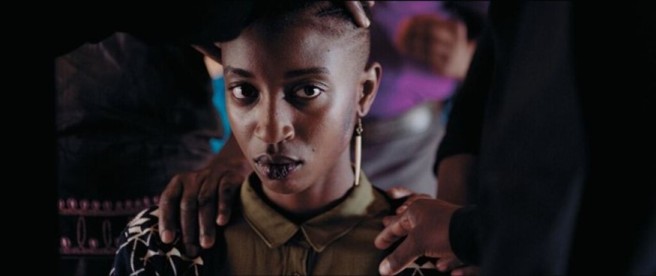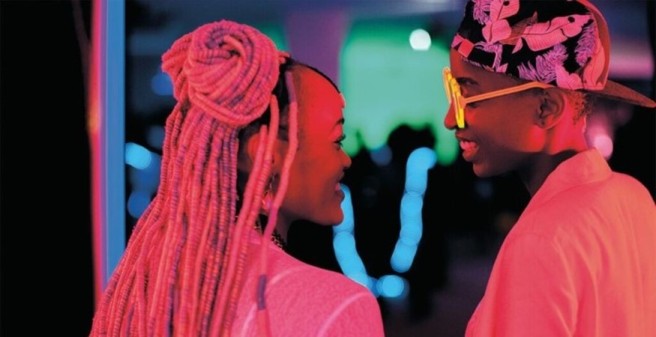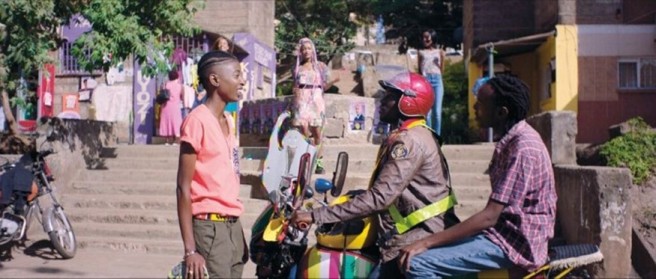B+ Coming of age drama
Written by Jenna Cato Bass & Wanuri Kahiu
Directed by Wanuri Kahiu
Gay coming-of-age movies are common in the independent film scene. But Rafiki is different. It’s set in a small Kenyan village, which brings bright colors and exciting music. But that setting also brings a threat of violent homophobia.
Kena (Samantha Mugatsia) fascinates the boys in her town. She travels by skateboard. She doesn’t dress like a woman. She likes boys, but only as friends.
Her parents are no longer together; in fact, they don’t even talk to each other. When one needs to send a message to the other, they go through Kena. Her father is something of a big man in town; he owns a local store and is running for elective office.

Then Kena meets the right girl. Ziki (Sheila Munyiva) is feminine. She sports pink dreads and wears skirts and makeup. She hangs out with other girls, practicing dance moves.
Their relationship becomes something new, exciting, and serious. To make matters more complicated, Kena’s new “friend” is the daughter of her Dad’s political rival.
Keep in mind that all this is happening in Kenya, an extremely Christian and homophobic country. Gays and lesbians, when found out, can be forced into exorcisms, or thrown into prison.

Rafiki isn’t only set in Kenya; it was shot there, too. You must give credit to the filmmakers for having the courage to just make the movie. Kenya has banned the film for “legitimizing lesbianism.” (The government temporarily removed the ban in hopes of an Oscar nomination.)
And yet, for two-thirds of the runtime, the movie feels upbeat. The screen splashes with vibrant colors. Danceable music saturates the town. There’s no sense of third-world poverty; no one is starving or dying for lack of clean water (or at least no one talks about it). The town feels like a great place to fall in love.
Oddly, no one seems to catch on about Kena and Ziki until quite late in the movie. Kena’s androgynous style doesn’t create worries about her sexual preference. No one gets suspicious when she objects to a young man’s homophobic slur (aimed at another young man). Even when the boys play soccer, and they insist that it’s not a game for girls, no one except Ziki finds it odd that Kena is allowed to play in the game. She’s just one of the boys.

The film gets much darker in the final act, when the townspeople turn into a mob. At this point, you can see that the two fathers – the two politicians – are two very different kinds of parents.
One problem: The last few minutes of the film are very confusing. That may have been intentional, but it doesn’t work.
The title, Rafiki, is never explained in the movie. I had to Google it. It means friend. It was also the name of a character in The Lion King.
Rafiki opens Friday, but as I write this, I’m not sure in what theaters.
